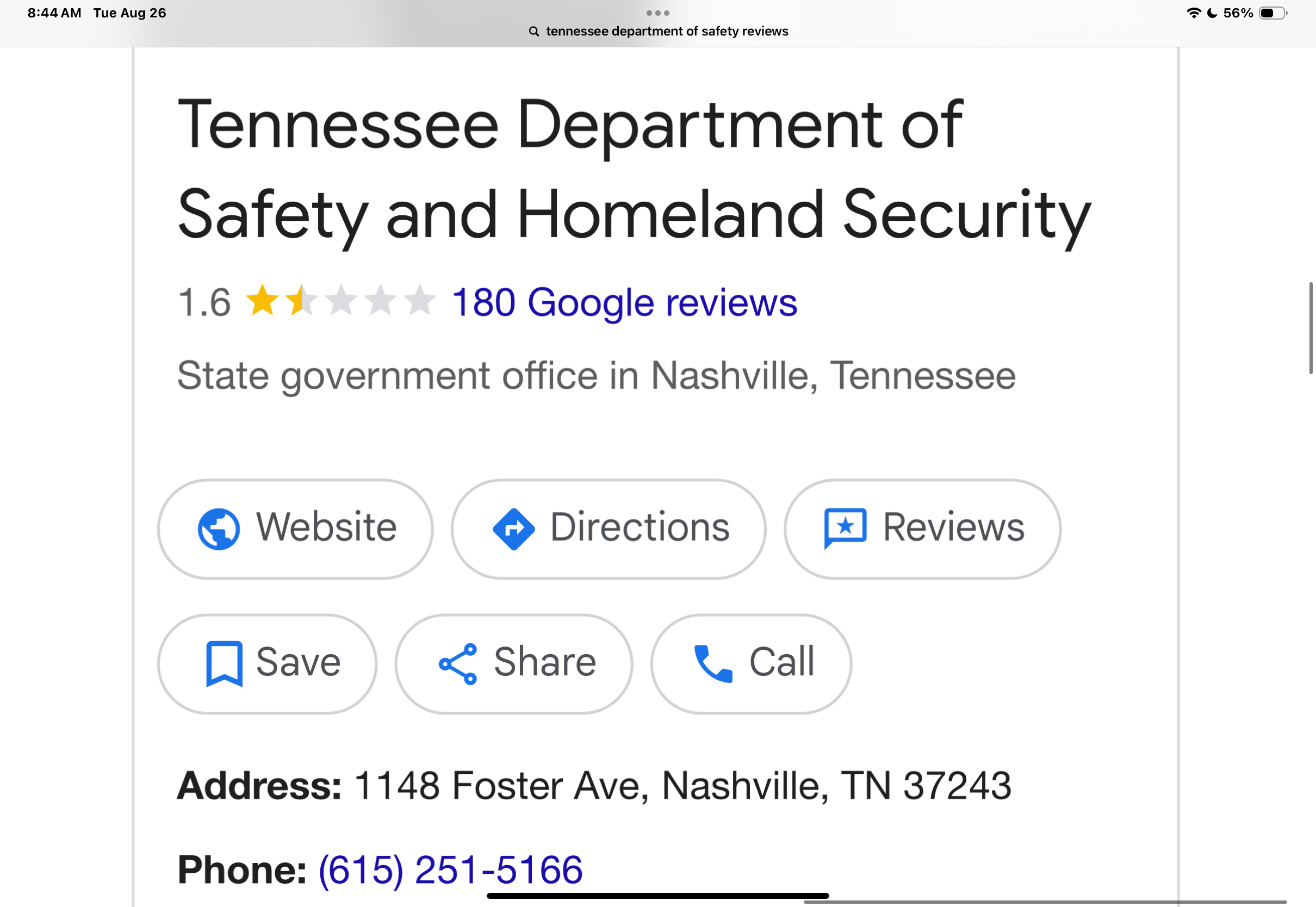Editor’s Note: Our sermon at church this morning was from Romans 8. I began thinking about all the waiting we do in life and the need for patience.
Paul wrote Romans 8 to early Christians in Rome who were facing persecution and uncertainty, offering them profound reassurance about their secure relationship with God through Christ. In this chapter, Paul addresses their struggles with suffering and waiting by emphasizing the Holy Spirit’s active role in their lives and God’s unbreakable love that sustains them through every trial.
Romans 8 presents the Holy Spirit not as a distant theological concept but as our personal advocate who intercedes when we don’t know how to pray, confirms our identity as God’s children, and empowers us to navigate life’s struggles—including those frustrating seasons of waiting for healing, answers, or change—with unshakeable confidence in God’s love.
A few months ago, I drove 65 miles round trip to Wilson County to renew my driver’s license—only to be told I had a four-hour wait. Four hours? For a simple license renewal that should take fifteen minutes. The wait time ended up being much less and I give the staff an “A” for their dedication and professionalism. As I sat outside in the car and looking at the crowded government office, surrounded by equally frustrated citizens holding their paperwork, I couldn’t help but laugh at the absurdity of it all.
My mind started brainstorming. Why does government seem so broken? Could this be privatized? Outsourced? Is it a labor problem, a process problem**,** or a myriad of problems?
Government doesn’t work well because it doesn’t have to. When a restaurant gives bad service, you don’t go back and they go out of business.
 But when the DMV gives bad service, you still have to go back—they’re the only game in town. I happened to pull up the Tennessee Department of Safety looking for a number last week and noticed something peculiar—their customer service rating is at a 1.6. I can’t say I was shocked—sadly, I wasn’t surprised at all. I then decided to look up Comcast ratings and it was 1.8, which is higher than the DMV. I’ve heard more complaints **about** Comcast than any company I can think of.
But when the DMV gives bad service, you still have to go back—they’re the only game in town. I happened to pull up the Tennessee Department of Safety looking for a number last week and noticed something peculiar—their customer service rating is at a 1.6. I can’t say I was shocked—sadly, I wasn’t surprised at all. I then decided to look up Comcast ratings and it was 1.8, which is higher than the DMV. I’ve heard more complaints **about** Comcast than any company I can think of.
Think About It
When Comcast has better customer service than the DMV—something is wrong! If your cable company treated you like the DMV**,** you’d switch providers tomorrow. But government agencies know you can’t switch, so they don’t worry about making you happy.
Plus, government has too many layers. To get anything done, your request goes through five different departments, each with their own rules and paperwork. Everyone’s so worried about following procedures that nobody cares if the procedures actually help people.
Here’s the kicker: when things go wrong in government, nobody gets fired. In regular business, if you make customers wait four hours for something that should take fifteen minutes, you’d be looking for a new job. In government, that’s just Tuesday.
The system is designed to avoid mistakes rather than serve people. You end up with endless meetings, mountains of paperwork, and processes designed in 1975 that were never updated. Government workers aren’t bad people—they’re stuck in a system that rewards playing it safe over getting things done.
We encounter these delays everywhere: grocery store lines that move at a glacial pace, post office queues that test our patience, and don’t even get me started on the DMV experience. These mundane frustrations seem trivial compared to life’s bigger waits—medical diagnoses, job searches, relationship healing—yet they’re all part of the same human condition.
Earlier that day, I’d spoken with a retired state commissioner about government inefficiency. After 48 years in public service, he just laughed and quoted an old adage often attributed to Aesop and Coach Lou Holtz: “After all is said and done, more is said than done.” His wisdom came from decades of learning that systems move slowly, people move slower, and change happens at its own pace regardless of our urgency.
As I write this, I’m listening to a sermon on Romans chapter 8, where Paul describes all creation as “groaning” while waiting for restoration. It strikes me that my DMV frustration and Paul’s cosmic vision aren’t unrelated. Whether we’re waiting for a renewed license or renewed hope, we’re participating in something universal—the human experience of living between what is and what should be.
The following article explores how ancient wisdom from Romans 8 can transform our perspective on life’s inevitable delays, from the trivial to the profound.

A Season of Waiting
None of us are good at waiting—and yet, waiting is an unavoidable part of living in this broken world. How does God equip us to wait for restoration?

This sermon was preached for Capital Pres Fairfax on December 1, 2024 as a part of our Advent series “Waiting with Hope.” Advent is a season of waiting, but it is also a season of hope and light, of warmth in the midst of longing. We will spend the five Sundays in December this year looking to Scripture’s sure promises as a solid foundation for our hope in Christ’s return, and the restoration of all things which he will bring. This week we focused on Romans 8:18-25. A recording of this sermon will be available on Spotify and Apple Podcasts.
* * *
We’ve officially entered the season of “waiting.” We’re waiting for the year to end. We’re waiting for Christmas and all its festivities: visiting family, opening gifts, watching favorite Christmas movies. One of my favorite “waits” is waiting for my mom’s gingerbread cookies to come out of the oven because it fills the whole house with delicious smells. But this can also be a season of unpleasant waits. I know many of us are waiting for the days to get longer. We’ve still got three weeks to go before we turn the corner. Hopefully this won’t be you this year, but many will be waiting for planes that will never take off, stuck in an airport with a cancelled flight.
It’s also around the holidays that we feel all the more keenly whatever long season of waiting you’re enduring: waiting for a good report from a doctor that never comes, or waiting for an apology that is never made. Waiting is no small matter.
This advent—the month leading up to Christmas—we’re going to be sitting in a sermon series titled “Waiting with Hope” because in the midst of these long waits, it can be all too easy to lose hope. But when we open up God’s word together, and we encounter the living God who fills it, we find exactly what our hearts were made to hope for. Our passage this morning is Romans 8:18-25.
18 For I consider that the sufferings of this present time are not worth comparing with the glory that is to be revealed to us. 19 For the creation waits with eager longing for the revealing of the sons of God. 20 For the creation was subjected to futility, not willingly, but because of him who subjected it, in hope 21 that the creation itself will be set free from its bondage to corruption and obtain the freedom of the glory of the children of God. 22 For we know that the whole creation has been groaning together in the pains of childbirth until now. 23 And not only the creation, but we ourselves, who have the firstfruits of the Spirit, groan inwardly as we wait eagerly for adoption as sons, the redemption of our bodies. 24 For in this hope we were saved. Now hope that is seen is not hope. For who hopes for what he sees? 25 But if we hope for what we do not see, we wait for it with patience.
This morning, we’re starting with a very simple thesis: Waiting is an essential part of our world that God equips us for. We’re gonna break that thesis down with three observations from our text.
-
-
Waiting is normal
-
Waiting is hard
-
Waiting is worth it
-








Leave feedback about this